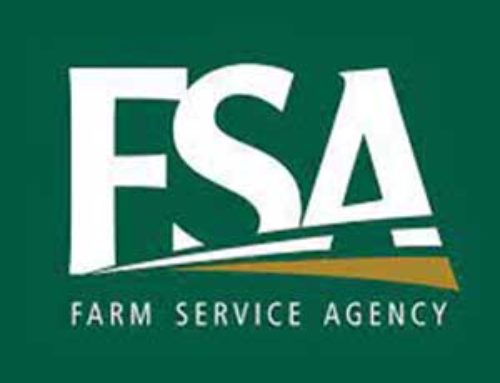
Pickers take a break during cherry harvest last June in Moxee, Washington. On March 17, the Washington State Supreme Court will hear a case involving rest breaks that could significantly impact piece-rate compensation and may result in substantial back-pay claims for piece-rate workers. (TJ Mullinax/Good Fruit Grower)
The Washington Supreme Court will take a road trip to Toppenish in eastern Washington on March 17 to hear a case that could have a major impact on the state’s agricultural employers, including orchardists.
At issue is whether employers who pay workers piece-rate wages owe them additional pay for rest breaks.
The case stems from a class-action lawsuit filed in 2013 in the U.S. District Court for Western Washington against Sakuma Brothers Farms, a berry producer in Burlington, Washington. It was filed by the Seattle law firm Terrell Marshall Daudt & Willie and Columbia Legal Services on behalf of two migrant workers.
Sakuma pays hourly workers for eight hours of work per day, even though they take two ten-minute rest breaks. But it does not pay workers for rest time when they are paid by piece rate.
The suit alleged that Sakuma failed to comply with several requirements under Washington and federal laws by failing to pay for all hours worked, failing to pay minimum wage, and failing to provide paid rest periods, for example.
Sakuma Brothers’ attorney Adam Belzberg, a partner at Stoel Rives LLP in Seattle, said the farm had not violated any federal or state laws but, as anyone who has been involved in a lawsuit realizes, the high cost of defense weighs against going to trial.
“With that in mind, we settled the case,” he told members of the Washington Farm Labor Association (WAFLA) at the annual labor conference in Wenatchee in February.
Settlement
Sakuma Brothers paid a settlement of $850,000, but the plaintiffs lawyers would not settle on one issue—whether, going forward, piece-rate workers must be paid separately for breaks and, if so, how payment should be calculated.
Noting that those questions have significant implications for the lives of thousands of workers and employers, the U.S. District Court asked the Washington Supreme Court to provide the answers.
Brendan Monahan, attorney with Stokes Lawrence in Yakima, said anyone interested in hearing the oral arguments can attend the hearing at Heritage University on March 17. “We’re expecting a big showing from farm labor advocates, and if other people want to go, they should,” he said.
Kristin Ferrera, a principal with the Wenatchee law firm Jeffers, Danielson, Sonn & Aylward, said other parties are allowed to file amicus curaie (friend of the court) briefs to provide additional information and perspectives for the court. WAFLA, the Washington Growers League, the Washington State Tree Fruit Association, the Association of Washington Businesses, and the Washington Farm Bureau are among those who have filed amicus briefs supporting the position that employers are not required to pay workers extra for rest breaks.
The Washington Department of Labor and the Washington Attorney General are among four entities that have filed briefs that appear to support the position of the petitioners.
However, Ferrera said the Attorney General focused on how workers should be paid for missed rest breaks, which is not an issue in this lawsuit.
Ferrera said the reason growers haven’t been paying for rest breaks is because a reasonable reading of the regulations indicates they didn’t need to.
However, should the court rule in favor of the workers, agricultural employers could be faced with paying their workers for breaks retroactively, as there’s a three-year statute of limitations for such claims.
“It’s possible we could be looking at three years of back wage claims, double damages, and attorneys’ fees,” she said. “It could be millions of dollars. This could be very damaging to growers.”
Contrived
Monahan said this is a contrived issue, not a genuine or legitimate dispute between the workers and the farm owners.
“This is a lawyer-driven money grab where labor advocates are trying to redistribute money from farm owners to farm laborers,” he contended. “The problem is the Supreme Court could be receptive to the concept.
“Every few years, the wage and hour lawyers find a new statute or a new regulation that’s vague and maybe not explained very well, and you have uneven documentation and application in the industry,” he added. “They will poke it and prod it and turn it upside down and do everything they can to shake some money out of it. It’s difficult when it appears to have the support of Labor and Industries and the Department of Labor. Then you have the appearance of government blessing of that approach.”
Dan Fazio, WAFLA director, said the rest-break regulation in the Washington Administrative Code says simply that: “Every employee shall be allowed a rest period of at least ten minutes on the employer’s time, in each four-hour period of employment. For purposes of computing the minimum wage on a piece-work basis, the time allotted an employee for rest breaks shall be included in the number of hours for which the minimum wage must be paid.”
He said the plaintiffs are arguing that the word “included” means “excluded.”
“The industry has far and away the superior legal argument,” Monahan agreed. “The English language is on our side. Common sense and logic are on our side. But this is a policy issue, and it’s a question of whether the Supreme Court will be receptive to really emotional policy-setting arguments from the worker advocates or whether they will actually follow the language of the law.”
Monahan said there is no telling when the Supreme Court might make its decision, but it usually takes several months. “I would not be surprised to see a decision before the end of August, before we get into apple harvest,” he said. “I would be surprised if we have something by cherry harvest. But you just don’t know.” •






Leave A Comment